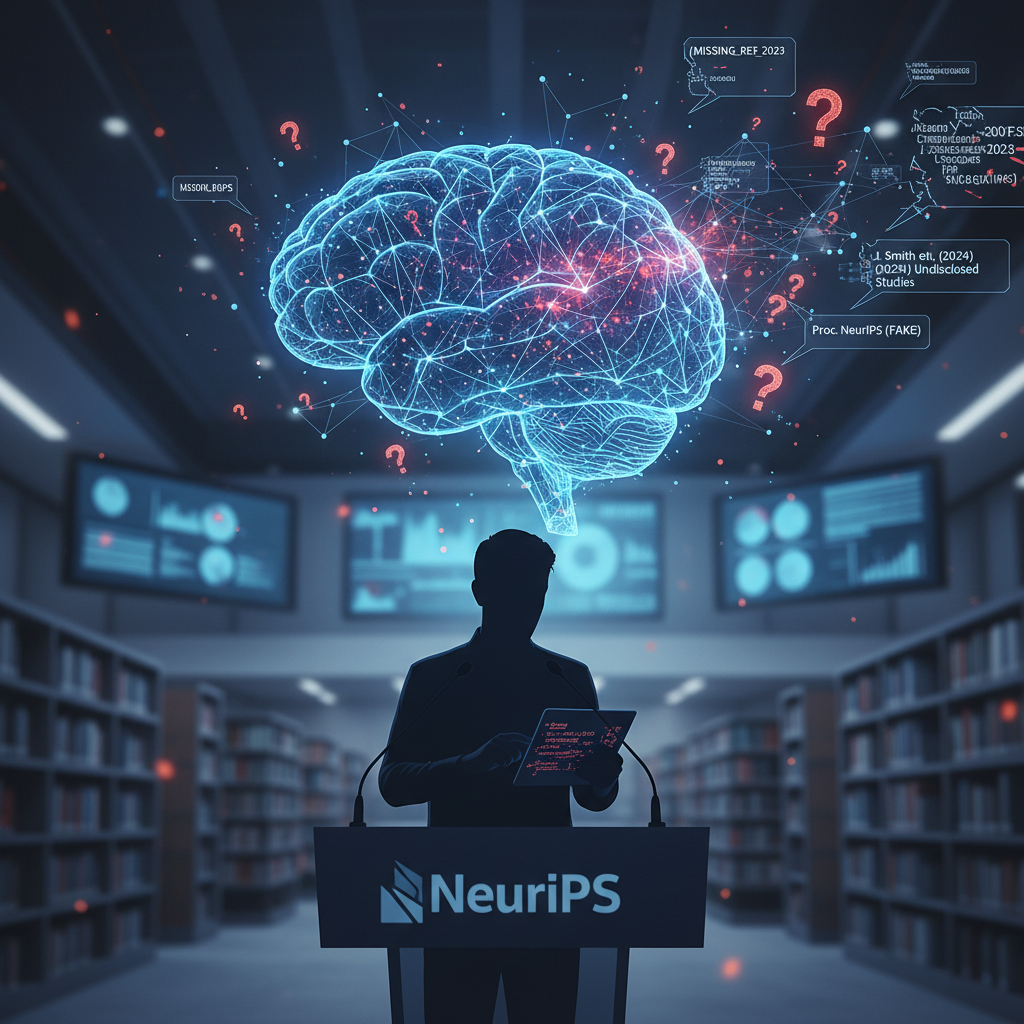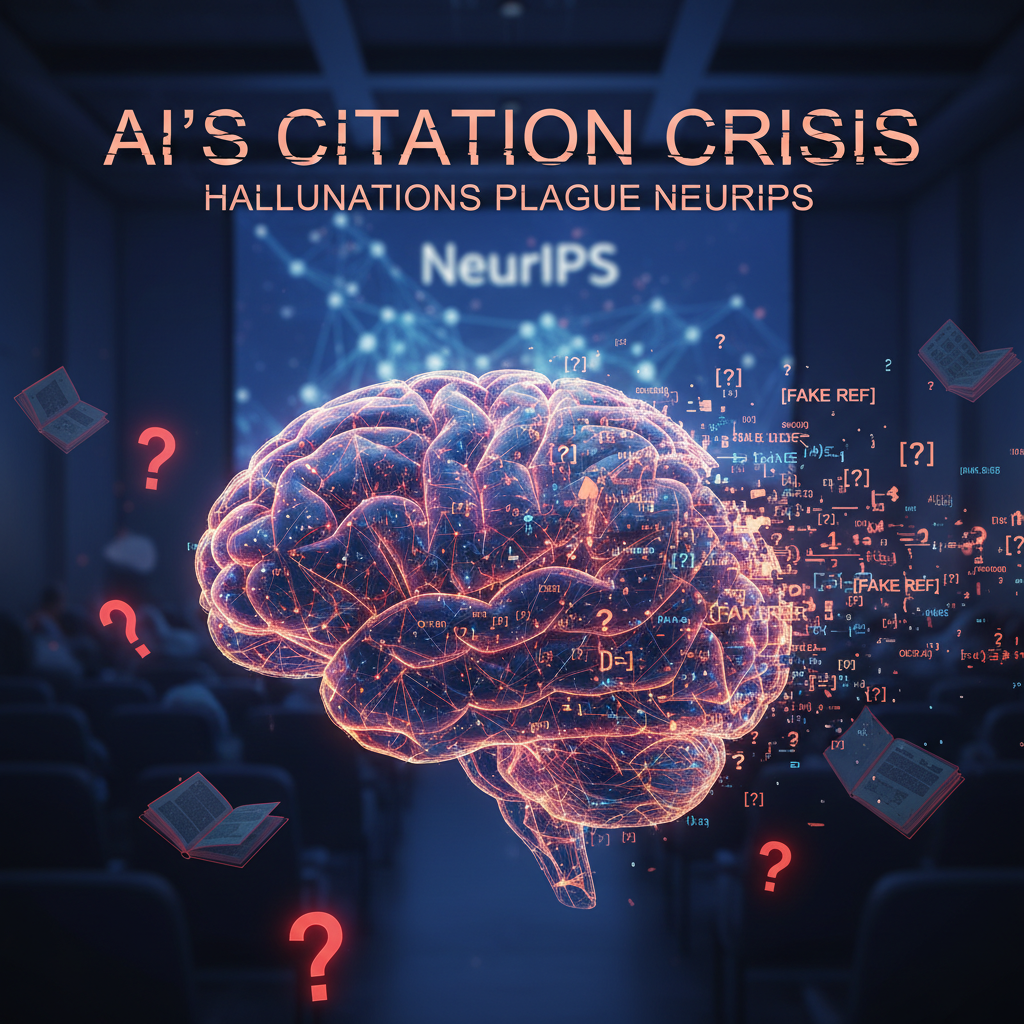AI’s Citation Crisis: Hallucinations Plague Prestigious NeurIPS Conference
The field of artificial intelligence is experiencing a rapid evolution, with advancements occurring at an unprecedented pace. However, as AI models become more sophisticated, so do the challenges associated with their use. One such challenge, highlighted by research from the startup GPTZero, is the proliferation of “hallucinated” citations in academic papers.
The Problem: AI-Generated Citations
The core issue revolves around AI models generating citations that do not exist or misrepresent the content of the cited works. This phenomenon, often referred to as “AI slop,” poses a significant threat to academic integrity. It undermines the foundations of research, making it difficult to verify the accuracy and originality of published work. The implications of this are far-reaching, potentially leading to the spread of misinformation and the erosion of trust in the scientific community.
According to the recent report, this issue has surfaced within NeurIPS, one of the most respected AI conferences. The very fact that this is happening at such a high-profile event underscores the severity of the problem. It suggests that even the most rigorous peer-review processes are struggling to keep pace with the capabilities of increasingly advanced AI models.
The Investigation: GPTZero’s Findings
GPTZero, the startup behind the investigation, used its expertise to detect these fabricated citations. Their research highlights the challenges that prestigious conferences face in the age of AI. The findings are a stark reminder of the need for robust methods to detect and prevent the misuse of AI in academic settings.
The research from GPTZero focuses on the “what” of the issue: specifically, the presence of “hallucinated citations” in academic papers. This “what” is further contextualized by the “where” – the NeurIPS conference. The “how” of the research involves the application of GPTZero’s detection capabilities. The “why” of the investigation is to highlight the challenges that prestigious conferences face in the age of AI. This includes the erosion of academic integrity and the potential spread of misinformation.
Impact and Implications
The presence of fabricated citations has several detrimental effects. It casts doubt on the validity of research findings, making it difficult for other researchers to build upon the work. It also wastes the time of reviewers and readers who may attempt to locate these non-existent sources. Furthermore, it erodes the public’s trust in the academic process. The integrity of research is paramount, and the proliferation of “AI slop” threatens to undermine this.
The fact that this is happening at NeurIPS, a premier venue for AI research, is particularly concerning. NeurIPS represents the cutting edge of AI, and the presence of these issues suggests that the problem is widespread and not limited to less prestigious venues. This also calls into question the effectiveness of current peer-review processes.
Addressing the Crisis
Addressing the issue of AI-generated citations requires a multi-faceted approach. First, conferences and journals need to improve their screening processes to detect fabricated citations. This could involve using AI-powered tools to check for non-existent references and verifying the accuracy of citations. Second, researchers should be educated on the ethical implications of using AI and the importance of academic integrity. Finally, the AI community must develop and promote best practices for responsible AI use in research.
The “when” of this crisis is now. The issue demands immediate attention. The findings from GPTZero serve as a critical wake-up call for the AI research community.
Conclusion
The discovery of “hallucinated” citations in papers submitted to NeurIPS is a serious issue. It underscores the challenges that the AI community faces as AI technologies become more sophisticated. Maintaining academic integrity is crucial, and the community must take steps to address this problem. This involves improving detection methods, educating researchers, and promoting responsible AI practices. Only through a concerted effort can the AI community safeguard the integrity of its research and maintain public trust.

